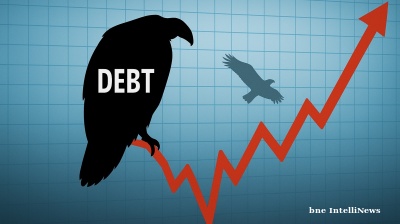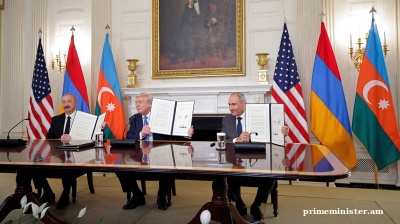On the morning of May 30 a series of kamikaze drones struck Moscow, in the most intense attack the capital has seen since President Vladimir Putin launched the full-scale invasion of Ukraine. Despite that, the Russian people appear to be carrying on with their daily lives as normal, seemingly undeterred by the war unfolding on their doorstep, bne IntelliNews’ Moscow correspondent reports.
According to the Kremlin, eight unmanned aerial vehicles (UAVs) were fired at Moscow, all of which were downed by either electronic warfare or the Pantsir-S surface-to-air missile system. Some of the drones landed in the capital and the surrounding region, resulting in what Moscow Mayor Sergey Sobyanin called "minor damage to several buildings." The drone strikes happened less than a month after two drones were filmed flying towards the Kremlin, with one exploding near a flagpole on top of the Kremlin Senate dome. The latest barrage will undoubtedly create apprehension in the country's decision-making circles.
Recent months have also witnessed the killing of Russian military blogger Vladlen Tatarsky, who died as a result of an explosion when he was given a statuette reportedly containing more than 200g of TNT equivalent, as well as a minor military incursion into Russia's Belgorod Oblast by the anti-Kremlin Freedom of Russia Legion and the Russian Volunteer Corps, a far-right militia opposed to Putin. According to Russia, this cross-border raid resulted in the death of two civilians and 13 wounded.
Unlike the situation in Belgorod Oblast, which is located on the border with Ukraine and has experienced shelling and other strikes for months, Moscow residents live in what is supposed to be the most highly protected airspace in Russia – the capital city. Throughout the entire length of the so-called "Special Military Operation" in Ukraine, Moscow has remained almost completely isolated from the war, experiencing it only through social media or television.
On May 30, a significant number of Muscovites reported being woken up by loud explosions, likely the sound of Pantsirs attempting to down the drones. Videos posted on social media showed drones flying over houses in the city's luxurious Rublyovka district, famed for being home to Russia's political and business elite, including President Vladimir Putin and Vladimir Lisin, the steel magnate described by Forbes in 2022 as the country's richest man.
The drone strikes, described by Russia's Defense Ministry as a "terrorist attack," were quickly used by popular Telegram bloggers and television propagandists to fire up their audience.
"This is war. It cannot be any other way. Dismantle Kyiv. Dismantle Odesa, Kharkiv, Dnipro, Lviv, Ivano-Frankivsk," Russian state TV host Vladimir Solovyov told his audience. "There should be strikes on those cities today, much more brutal than our current ones." Other figures such as Konstantin Sivkov, a regular commentator on Russian talk shows, attempted to use the attack to provoke anger in the public, suggesting that they should show more support for the war effort.
"I believe these strikes are very positive for us… They will mobilise society," he told Russian TV. "People will now understand that our enemy is very serious, and that the enemy could blow up your car near your block of flats." However, despite the hyperbole seen on TV, the reaction from Russian society remained muted. The first strikes to hit Moscow residential buildings since the launch of the full-scale invasion did not generate widespread panic and fear. The majority of Muscovites, just like they have been doing every day since February 2022, carried on with their lives as usual, seemingly unfazed by the war coming to them.
“To be honest, I don’t know much about it,” Anna, a 27-year-old barista told bne IntelliNews. “It didn’t wake me up. I saw something on Telegram this morning, but I didn’t research into it. I’ve stopped following the news since the start of the situation [in Ukraine].” Anna's story is representative of a prevailing trend in Russia. A significant portion of the population, even including some in the younger generation who strongly oppose Putin, has chosen to disengage from the news, which constantly serves as a reminder that the country is in a state of war.
“I don’t care about it,” Mikhail, a lifelong Muscovite, told bne IntelliNews. "It doesn't affect me at all. I stopped caring about the war in Ukraine a long time ago; I just want to be left alone." Mikhail, who lives on the eastern outskirts of Moscow and has two children, also noted that many of his friends feel the same way.
"I'm just focusing on trying to save money so that I can take my sons to Turkey for a week this summer. We haven't been able to travel to another country since the Covid-19 pandemic," he continued. “Lots of my friends feel the same way. We have other priorities. There is nothing I can do about Ukraine. I don’t want to fight, my sons are too young to be drafted, my wife is exempt from military service, and my parents are elderly.” Mikhail's apathy is indicative of a nationwide phenomenon. Following the initial shock of the invasion, the Russian public quickly recovered and, for many, the war became a mere backdrop to their daily existence, leaving most people with the feeling that the basic normality of their lives would continue on. Even in the face of drones targeting Moscow, it is unlikely that the majority of the city's residents will react – unless these drones directly strike their own homes, thereby bringing the war into the confines of their own living rooms.
In September 2022, Russian pollster Denis Volkov explained that the apathy has come as a result of the general public adapting to a 'new normal.' “As time passes, attention to the fighting in Ukraine is starting to subside. An extreme situation had become part of people’s everyday routine,” he wrote, for the Washington-based Carnegie Endowment for International Peace think-tank. “The drawn-out hostilities are starting to be seen as something of a second pandemic: a storm that must simply be weathered, after which everything will return to the way it should be.” The overwhelming indifference and detachment displayed by the majority of Russians aren’t universal, however. For some, especially young people worried about their future and their potential to live and work abroad, the fear is palpable.
“I’m scared, and I’m frustrated that nobody else seems to be. One day there will be a huge explosion here in the centre, and some of us will die,” Ivan, a 20-year-old student from a prestigious Moscow university told bne IntelliNews. "While my friends party every weekend, go to fancy restaurants and make plans for trips to Dubai and Italy, I am consumed by constant anxiety." The lack of response from the public, despite the war coming so close, might be exactly what the Kremlin wants. With the passive majority supporting the war, and active support for the war still low, Putin is likely to want to keep the potential for overreaction to a minimum. Following the drone attacks, the Russian President put on a brave face, appearing calm and composed, and intentionally avoided inflammatory language and overt threats against either Ukraine or the West.
“The Kyiv regime has chosen to intimidate Russian citizens and strike residential buildings. This, of course, is a clear sign of terrorist activity,” he told state TV. “But Moscow's air defence system worked well, satisfactorily.” Putin's composed statement, a clear message to Russia that all will be fine, is unlikely to go down well with the country's elites. Whilst the general public will carry on with their lives as normal, focusing on feeding their children and paying their bills, the capital's rich and influential are unlikely to accept it. While many are resigned to the fact that some of their wealth and property is sanctioned or stuck abroad, they never expected to be woken up by drones flying next to their houses, in the most expensive part of Russia, under the most highly protected airspace in the country.
Features
_1758174730.jpg)
Indonesia’s Raja Ampat - tourism hub or den of corruption?
In recent years, Indonesia has doubled down on promoting Raja Ampat, a remote archipelago in West Papua famed for its biodiversity, as a global eco-tourism icon.

Flood corruption scandal shakes the Philippines
The Philippines is grappling with a widespread controversy surrounding its flood control programme, with allegations of billions of pesos being siphoned off from projects meant to protect vulnerable communities.

The European Commission proposes to “creatively” tap Russia’s $300bn of frozen assets with Reparation Loans
The European Commission is floating a new idea of how to “creatively” tap Russia’s $300bn of frozen assets without the need to appropriate, which is legally questionable, by replacing the money transferred to Kyiv with EU-backed bonds.

“Yuri Gagarin” cosmodrome seeking a future in space – and tourism
Golden age of spaceport is long over, with Moscow focused on facilities in Russia. Kazakhstan, however, hopes it can find profitable niche in launching satellites.



